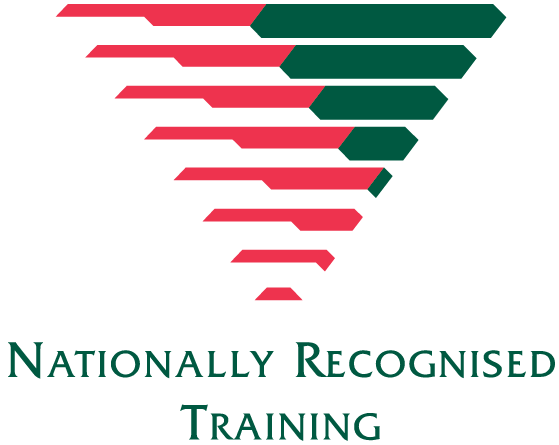Qualification Description
This qualification reflects the role of community services workers involved in the delivery, management and coordination of person-centred services to individuals, groups, and communities.
At this level, workers have specialised skills in community services and work autonomously within their scope of practice under broad directions from senior management. Workers support people to make change in their lives to improve personal and social wellbeing and may also have responsibility for the supervision of other workers and volunteers. They may also undertake case management and program coordination.
To achieve this qualification, the candidate must have completed at least 200 hours of work as detailed in the Assessment Requirements of units of competency.
The skills in this qualification must be applied in accordance with Commonwealth and State or Territory legislation, Australian standards and industry codes of practice.
No occupational licensing, certification or specific legislative requirements apply to this qualification at the time of publication.
Who is the course suitable for ?
The CHC52021 Diploma of Community Services course is ideal for individuals who are passionate about helping others and wish to pursue a career in community service and support roles. It is designed for those looking to advance their careers into leadership or managerial positions within community service organisations, where they will oversee programs and services that support individuals and groups in need.
This course enables individuals to take on senior roles such as case management, policy development, or program coordination, while working with diverse populations and vulnerable communities, including people experiencing homelessness, mental health challenges, domestic violence, or youth at risk. Whether you’re new to the sector or seeking to upskill, this course provides the essential knowledge and practical skills needed to succeed in this rewarding field.
The role of community services workers involves the delivery, management, and coordination of person-centred services to individuals, groups, and communities.
Course Duration
- 12 – 18 Months
All students are to engage in at least 10 hours of supported self-paced learning each week during the course. Supported self-paced learning is to be undertaken by the students outside of the scheduled hours according to the student’s individual learning needs. However, to support the students, AGAE will provide a self-study guide that links to self-paced learning activities to these scheduled timetables.
Mode of delivery
- Face to Face and/or Live Zoom Sessions
Training Locations
- Victoria: GO2/1510 Pascoe Vale Road, Coolaroo Vic 3048
- SA: 255 South Road Mile Ends, SA 5031
Work Placement
To achieve this qualification, the candidate must have completed at least 200 hours of work as detailed in the Assessment Requirements of units of competency.
Course Structure
To be awarded the nationally accredited certificate the CHC52021 Diploma of Community Services, a student must successfully complete a total of 20 units comprising of 12 core units and 8 elective units.
| Unit Code | Unit Name | Core / Elective |
|---|---|---|
| CHCCCS004 | Assess co-existing needs | Core |
| CHCCCS007 | Develop and implement service programs | Core |
| CHCCCS019 | Recognise and respond to crisis situations | Core |
| CHCCSM013 | Facilitate and review case management | Core |
| CHCDEV005 | Analyse impacts of sociological factors on people in community work and services | Core |
| CHCDFV001 | Recognise and respond appropriately to domestic and family violence | Core |
| CHCDIV001 | Work with diverse people | Core |
| CHCDIV002 | Promote Aboriginal and/or Torres Strait Islander cultural safety | Core |
| CHCLEG003 | Manage legal and ethical compliance | Core |
| CHCMGT005 | Facilitate workplace debriefing and support processes | Core |
| CHCPRP003 | Reflect on and improve own professional practice | Core |
| HLTWHS003 | Maintain work health and safety | Core |
| CHCCSM015 | Undertake case management in a child protection framework | Elective |
| CHCMHS013 | Implement trauma informed care | Elective |
| CHCPRT025 | Identify and report children and young people at risk | Elective |
| CHCPRT027 | Work collaboratively to maintain an environment safe for children and young people | Elective |
| CHCCCS033 | Identify and report abuse | Elective |
| CHCDFV002 | Provide support to children affected by domestic and family violence | Elective |
| CHCDFV006 | Counsel clients affected by domestic and family violence | Elective |
| CHCCSM010 | Implement case management practice | Elective |
What resources are used to deliver the training?
Student Handbook
A comprehensive Student Handbook will be provided to each student. This document outlines the course structure, objectives, key concepts, and guidelines, serving as a reference throughout the program. It also includes essential information on safety protocols and best practices. The handbook contains:
- Key learning points and summaries for each unit
- Theoretical readings and additional resources to deepen understanding
This resource ensures students are well-equipped to navigate the course and apply their knowledge effectively.
Textbook
The Textbook for students studying the Diploma of Community Services provides essential information to help them navigate through the course content, practical tasks, and assessments. It contains in-depth explanations of key concepts and regulatory requirements. Students are required to purchase their own textbooks at their own expense. For detailed information on the required textbooks, purchasing process, and related details, please inquire during th enrolment process.
Presentation Slides
Presentation slides are used by the trainer during the course delivery to visually support key concepts and discussions. These slides summarize the main points from the Textbook, helping students follow along and engage with the material. They may include:
- Diagrams and visuals of safe lifting techniques and ergonomic principles
- Charts showing the hierarchy of controls for manual handling risks
- Example scenarios and case studies for group discussion
Practical Equipment & Tools
During practical sessions, students will typically use a variety of practical equipment and tools to support their learning, develop their skills, and gain hands-on experience relevant to the field. Some of the common equipment and tools they may use during their studies include:
- Communication Tools: for maintaining contact with clients, colleagues, and external services.
- Realistic workplace scenarios for group exercises and demonstrations
These tools and equipment help ensure that community services professionals are able to efficiently manage their work, support clients effectively, and maintain safety in their interactions. Keep in mind that specific needs may vary depending on your role or the type of organisation you work for in the community services sector.
Risk Assessment Templates
Students will be provided with templates to conduct risk assessments. These templates guide learners in systematically evaluating hazards, assessing risks, and developing control measures for a variety of work-related situations. They are an essential resource for both individual and group activities, ensuring a structured approach to safety and risk management.
Assessment Tools
Assessment tools will include:
- Knowledge questionnaires to assess understanding of safety regulations, risk controls, and relevant workplace procedures
- Practical assessment checklists to evaluate students’ ability to apply safety protocols and risk control measures during simulated workplace tasks
- Case Studies and Scenarios: to evaluate a student’s ability to apply theoretical knowledge to real-life community service situations.
- A workplace project / Placement Portfolio: to document a student’s experiences and skills gained during practical placements in community services.
These tools ensure that students are assessed on both their theoretical knowledge and practical application of safety practices.
Assessment Arrangements
- Assessments are designed to allow the students to exhibit competencies in the unit(s) of competency.
- Assessment’s methods can include practical tasks, project, written responses, role play, supervisors report, case studies, etc.
- Information about assessment requirements will give out in the first class and explained clearly by the trainer/assessor.
- Students are not graded but deemed “Competent” or “Not Yet Competent”.
- Students can appeal an assessment outcome.
Student Support
AGAE offers a range of support services to meet everyone’s needs. Please contact AGAE directly for assistance with your requirements.
What can I do once I have completed my qualification?
Upon successful completion of this qualification, CHC52021 Diploma of Community Services, students will be equipped with essential skills to work in a wide range of roles within the community services sector, including in case management, program development, advocacy, and supervision. By applying knowledge and skills, students are well-equipped to make a significant impact in the lives of individuals and communities in need of support, lead and support teams of community service workers by providing supervision, mentoring, and coaching.
Career Pathways
CHC52021 Diploma of Community Services prepares students with the skills and knowledge to support vulnerable people, coordinate programs, and work with individuals and communities in need. Here are some potential career pathways for someone with this qualification:
- Community Services Worker
- Case Manager
- Family Support Worker
- Youth Worker
- Aged Care Coordinator/worker
- Disability Support Worker
- Domestic Violence Support Worker
- Social Services Manager
- Mental Health Worker
- Community Development Worker
Education Pathways
After completing the CHC52021 Diploma of Community Services, graduates have several further study pathways to advance their careers in the community services and social work sectors. These pathways can help deepen their expertise and open opportunities for higher-level roles. Here are some common further study options:
- Bachelor of Social Work
- Bachelor of Community Services
- Bachelor of Psychology
- Master of Public Health
AGAE does NOT guarantee any;
- Licensing outcome
- Employment outcome
- Successful completion of this course
Are there any prerequisites or entry requirements?
There are no entry requirements for this qualification.
The RTO has the following admission requirements:
- Students must be 18 years of age.
- AGAE requires all enrolment and payment details to be completed, includes USI number, prior to attending.
- Basic computer / IT skills.
- All applicants are required to participate in a pre-course interview prior to enrolment to evaluate their eligibility for the course.
- Students must undertake Language, Literacy and Numeracy test prior to enrolment. To gain entry into this course, student must have been determined as having the appropriate LLN capability.
- This program has been designed to be delivered through classroom-based delivery and students must have the ability to attend the scheduled sessions as per the timetable and must have access to a computer and the internet to complete self-study work. Students are to be informed of the timetable on enrolment and must maintain the required student contact hours.
- Students must be prepared to follow industry dress code standards for the work placement component of the course.
- This course has no entry requirements, however, prior to work placement, students will be required to obtain a Working with Children’s Check, National Police Check, NDIS Check, First Aid training and Manual Handling training at their own cost.
- Applicants must possess the mental, emotional, and physical resilience, as well as the willingness, to work with clients for extended hours on a daily basis.
- Applicants must identify any issues including mental, emotional, and physical issues of relevance to this occupation and training at the time of registration.
South Australia:
All students who are seeking to access to training are required to participate in the Upfront Assessment of Need process.
- For more details about the UAN assessment visit https://providers.skills.sa.gov.au/Deliver/Upfront-Assessment-of-Need
- Individuals who are unwilling to participate fully in all aspects of the UAN process may instead choose to undertake training through fee for service arrangements.
- Suitability to ensure there is a good fit between the individual and the qualification of choice support requirements to ensure early identification and planning for individual learning, personal or complex needs.
- Literacy and numeracy to ensure wherever possible the individual can, if otherwise suitable, undertake a vocational qualification with additional foundation skills training OR to provide a clear evidence base of need for accessing a foundation skills qualification.
- Students must identify any issues including mental, emotional, and physical issues of relevance to this occupation and training at the time of registration.
The requirement to provide a Unique Student identifier (USI)
All students are required to obtain a Unique Identifier (USI) prior to enrolment or provide evidence if exemption from obtaining a USI. A student can obtain a USI by visiting the following website to create a USI number:
If a student has already previously obtained a USI number but does not know it, they can go to the website to obtain their USI:
Student can also sign a USI consent form to allow AGAE to search or create a USI number on their behalf.
AGAE will not issue an AQF qualification if the student fails to adhere to this requirement.
Skills Recognition
Under the Australian Qualification Framework (AQF), AGAE accepts and provides Credit and Recognition of Prior Learning (RPL) to learners for units of competency and/or modules (unless licensing or regulatory requirements prevent this) where these are evidenced by:
- AQF certification documentation issued by any other RTO or AQF authorised issuing organisation, or
- Authenticated VET transcripts issued by the Registrar
Obtaining your certificate or Statement of Attainment after successfully completing your course
- AGAE will issue a certificate within 30 calendar days of successful completion of the course, provided all requirements are met, fees are fully paid, and the USI (Unique Student Identifier) has been supplied.
- For students who partially complete the course successfully, a Statement of Attainment will be issued, provided all fees are fully paid and the USI has been supplied.
Fees:
South Australia Funded Student:
$669.00 ‘Participant Eligibility Criteria apply’ for to be eligible for South Australia Funded Student fees.
*Supported by the Skills SA
You can check your eligibility at:
- Must be 18 years and above and not enrolled at school
- An Australian or New Zealand Citizen (Funded and Non-Funded Course) or
- A permanent Australian Resident or
- An eligible visa holder (Funded and Non-Funded Course) for more details on eligibility for funding courses visit:
https://providers.skills.sa.gov.au/Deliver/Student-eligibility-for-subsidised-training
Victoria Funded Student:
$200 ‘Participant Eligibility Criteria apply’ for to be eligible for Victoria funded student fees.
- Suported by the Government of Skills Victoria.
Other States:
The cost for the full course for non-funded students is $5,500. This includes all tuition materials, administration fees, and training materials to complete the course. Students will be required to pay a deposit of $500 at the time of enrolment. Students/candidates can then either pay the balance in full upon commencement of the course or use the payment plan option available, which consists of 10 monthly instalments of $500.
AGAE does not take more than $1,500 as part of monthly instalment at any one time.
Cooling off period
Our refund policy is included in the agreement that you are required to sign to indicate acceptance of the offer of enrolment and all the terms and conditions specified. All self-funded course fees include a non-refundable deposit as outlined on the Course Outline and Student Agreement, which must be paid to secure a student’s place in the course.
The deposit is non-refundable except in the instance where AGAE is required to cancel a course due to insufficient numbers or for other unforeseen circumstances.
Students who withdraw from a course and wish to seek a refund or have the amount they owe on their fees reduced must apply to AGAE in writing, outlining the details and reason for their request.
Students who have not completed a withdrawal form are not eligible for consideration of a refund or reduction in fees. Eligibility for a refund will be assessed based on the services provided to the student and the costs incurred by AGAE in order to provide those services to the student. The outcome of the refund assessment will be provided by written notice to the student’s registered address outlining the decision and reasons for the decision along with any applicable refund or adjustment notice.
AGAE adheres to the cooling-off period as specified according to Australian Consumer Law. Further details can be accessed in the AGAE’s Student Handbook which is available on our website: https://www.agaeducation.com.au
How to Enrol
To enrol in this course, please complete the enrolment form available on the website and email it to: admin@agaeducation.com.au
Or you can call us on:
- South Australia: (08) 7480 3318 / 0451 600 626
- All other states: (03) 8313 3249 / 0451 600 626
We will contact you to discuss your needs prior to finalising your enrolment.
‘Please ensure you read our Student Handbook along with this Course Outline’




